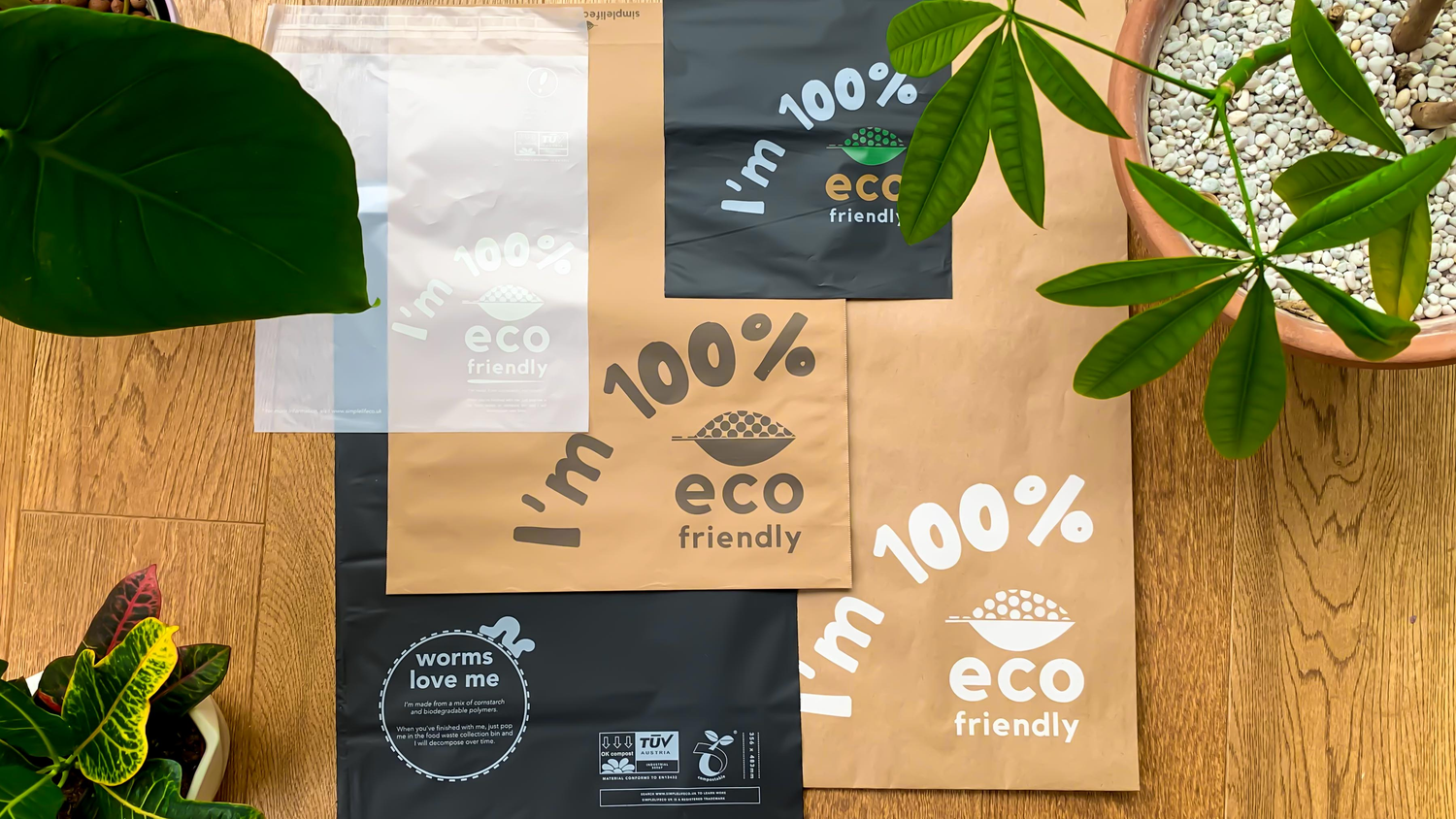- Guest written by Annie Button
Thanks to a greater awareness of sustainability and climate change, consumers are looking for more social responsibility from the brands they love and use. It is important, then, as a brand to ensure that you convey your sustainable and social commitments to your customers as clearly and effectively as possible.
But, not only must you talk the talk, you must walk the walk and show through your actions a commitment to reducing your carbon footprint, or ideally, operating at net zero or even carbon negative. Whether that’s wholesale changes or getting there step by step, the more eco-friendly measures and practices you put in place, the better it is for the planet.
This article looks at how businesses can reduce their negative impact on the planet by adopting ethical printing solutions for their branding materials and merchandising.
Switching to sustainable marketing
There are two key aspects of sustainable marketing. Firstly, this is how you share your commitment to sustainability with your potential customers, whether that’s championing your net zero goals, a cleaner supply chain or adopting solar panels and greener packaging.
This is important because many consumers are not buying from brands and companies they believe are doing some environmental good. For example, a study by McKinsey discovered that more than 60% of consumers would pay more for a product with sustainable packaging. Not only is sustainability the responsible thing to do, but it can also help companies to be more desirable.
Secondly, sustainable or green marketing can be done through the materials and mechanisms that your brand uses to increase its awareness or market share. An example of this is through switching to email marketing rather than traditional print or finding more sustainable alternatives to classic printed materials to reduce your impact that way.
Understanding the benefits of green marketing
All you have to do is take a look at some of the biggest brands in the world and how they are now marketing themselves to see the importance of sustainability in marketing. Green marketing today makes your company more desirable to customers, and if faced with a choice between a brand that highlights its commitment to sustainability and one that does not, many customers are now opting for the sustainable one.
For example, research shows that 66% of consumers aged 18 to 24 would buy from brands with strong ethical and sustainable credentials. Additionally, green marketing helps to make your brand values more visible while also helping to keep your customers coming back for more in the understanding that using your brand results in a smaller carbon footprint for them.
Choosing ethical printing companies
When it comes to merchandising and branding, switching to an ethical printing company can make a significant difference. For example, Treetop Design and Print, an environmentally conscious printer in Sussex, provides environmentally-friendly printing that utilises either recycled paper or paper from FSC-certified sustainable sources, which are also biodegradable. Furthermore, the printer is certified vegan, meaning they use inks that are not derived from animals while also only using inks from renewable sources.
Similarly, I Dress Myself, is a UK-based ethical t-shirt printing company using water-based inks for sustainable printing and embroidery for custom garments, perfect for a brand looking to market itself while also reducing the impact of its branding efforts.
Using recycled paper and packaging
Although much business activity is done electronically these days, we can still minimise the impact of printing in the office or for promotional communications by using recycled paper. This could be for anything from printing out information packs to share around the office or promotional leaflets for grabbing attention at a corporate event. One example is using seeded paper which not only leaves a lasting impression on potential clients for businesses but also can be planted to sprout seedlings as it decomposes.
Individual business owners and companies can combine their ethical values and highlight their support for valuable social initiatives via their daily business operations. This might be through opting to send mail, parcels and products in a variety of eco-friendly packaging.
Creating long-lasting, high-quality merchandise
Perhaps the greenest merchandising solution you can make is to do away with it altogether, however this does mean you can lose out on the brand recognition benefits. An alternative is to create long-lasting and higher quality merchandise that can add value to a customer’s life that they will continue to use, time and time again.
A great example of this is a reusable water bottle that reduces the need for people to drink from plastic bottles. Cheap pens are a great example of throwaway merchandise that few people truly cherish and if it breaks after a couple of uses then it has served no purpose.
Consider creating something a little different for your branded swag. Giveaway items that promote sustainable living, like reusable coffee cups or canvas tote bags are particularly useful as they are everyday items. For example, Circular&Co creates sustainable coffee cups using sustainable materials and free from harmful chemicals.
Having a smarter branding strategy
According to a Global Ad Impressions Study, branded promotional products are only kept for a year on average. That same study also found 23% of corporate swag is thrown away, so not only is this unsustainable from the planet’s perspective but businesses are also losing plenty of resources with ‘disposable’ merchandise.
However, rather than simply emblazoning your brand name on them, consider using an important slogan for your company – using sustainable printing methods, of course. Not only does this mean people won’t feel like a walking advertisement for your company but it can create a conversation around your brand that traditional merchandise often fails to do.
Another great way to extend the lifetime of your merchandise is to avoid adding specific dates, even if you are giving them out at a particular event. By dating the merchandise, people will be less inclined to keep using it years after, furthermore, if you have merch left over you can reuse it next time rather than needing to create even more.
Opting for sustainable materials
There is no doubting the serious impact on the planet our throwaway approach to production has been since the dawn of the industrial revolution but we humans are an innovative species and when posed with a problem we will find a way to overcome it. With the knowledge that single-use products are wrecking the planet, the past 5-10 years have seen a real boom in the creation of biodegradable products.
Whether that be Simplelifeco’s compostable mailing bags made of cornstarch, bamboo toothbrushes, or beer can rings made from sugar cane, there are now many alternative materials in the world to allow for sustainable production. That means your branded goods or merchandise can be made of similar materials while allowing you to raise awareness for your company.

